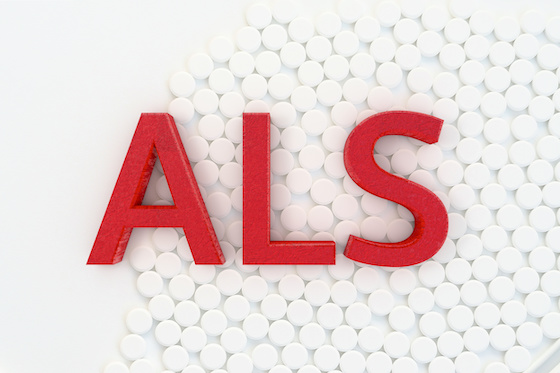Calico draws blank in study of AbbVie-partnered drug for ALS
Top Story
By: Matthew Dennis
Ref: Calico Life Sciences, Massachusetts General Hospital
Published: 01/07/2025

Efforts by Calico Life Sciences to tackle age-related diseases have hit their first bump in the road, with the failure of a Phase II/III study investigating fosigotifator in adults with amyotrophic lateral sclerosis (ALS). The eIF2B activator, also known as ABBV-CLS-7262, forms part of the Alphabet-founded biotech's collaboration with AbbVie.
The setback was announced the same day Denali Therapeutics reported that its eIF2B agonist DNL343 also came up short in ALS. Both fosigotifator and DNL343 were being investigated in the HEALEY ALS Platform Trial, an initiative spearheaded by the Sean M. Healey & AMG Center for ALS at Massachusetts General Hospital to accelerate the development of ALS treatments by testing multiple drugs and regimens at the same time.
Regimen F of the study included two doses of fosigotifator given once per day for 24 weeks. Top-line results showed that fosigotifator did not meet the trial's primary endpoint of disease progression for either the primary or the exploratory high dose. Calico added that key secondary goals based on the Revised ALS Functional Rating Scale (ALSFRS-R), respiratory function and health-related quality-of-life, were also not statistically different from placebo for the primary dose.
Meanwhile, Regimen G of the study tested DNL343 versus placebo, with Denali's drug also failing to significantly slow disease progression over placebo, as measured by ALSFRS-R through week 24. In addition, DNL343 did not lead to statistically significant improvements in muscle strength or respiratory function at the same timepoint.
High-dose validates target?
However, Calico noted that endpoints of muscle strength, as measured by hand-held dynamometry (HHD), appeared to be different between the exploratory high-dose fosigotifator and placebo groups. Patients given the high dose of fosigotifator experienced a 32% slower decline in upper extremity muscles compared to the concurrent placebo cohort.
In lower extremity muscles, the high-dose fosigotifator treatment group declined 62% slower than the shared concurrent placebo cohort. There was also "a potential signal" towards slowing respiratory functional decline as measured by the slow vital capacity (SVC) in participants on the exploratory high dose, according to the company.
"The findings at the exploratory high dose on muscle strength in both upper and lower extremities and possibly in respiratory function suggest that this target and approach need additional investigation," remarked principal investigator Merit Cudkowicz. "We have additional pre-specified subgroup analyses and biomarker work pending from this regimen… and will further evaluate the data before determining next steps."
Calico said fosigotifator was safe and well tolerated in the trial, with 25.2% of patients experiencing treatment-emergent adverse events considered related to the drug, compared to 26.2% for placebo.
"Although these results were disappointing, the study has yielded important insights into fosigotifator's potential bioactivity in people with ALS that supports further investigation," remarked Bill Cho, head of clinical sciences at Calico.
The drug is also being investigated in vanishing white matter disease — where it was selected by the FDA earlier this year for its Support for clinical Trials Advancing Rare disease Therapeutics (START) pilot programme — and major depressive disorder.